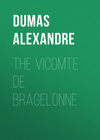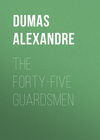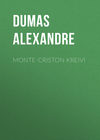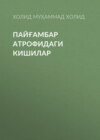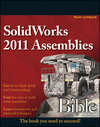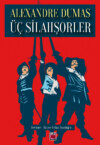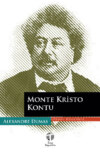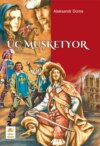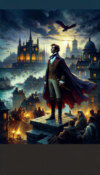Kitabı oku: «Louise de la Valliere», sayfa 9
Chapter XIV. The King’s Supper
The king, while these matters were being arranged, was sitting at the supper-table, and the not very large number of guests for that day had taken their seats too, after the usual gesture intimating the royal permission. At this period of Louis XIV.‘s reign, although etiquette was not governed by the strict regulations subsequently adopted, the French court had entirely thrown aside the traditions of good-fellowship and patriarchal affability existing in the time of Henry IV., which the suspicious mind of Louis XIII. had gradually replaced with pompous state and ceremony, which he despaired of being able fully to realize.
The king, therefore, was seated alone at a small separate table, which, like the desk of a president, overlooked the adjoining tables. Although we say a small table, we must not omit to add that this small table was the largest one there. Moreover, it was the one on which were placed the greatest number and quantity of dishes, consisting of fish, game, meat, fruit, vegetables, and preserves. The king was young and full of vigor and energy, very fond of hunting, addicted to all violent exercises of the body, possessing, besides, like all the members of the Bourbon family, a rapid digestion and an appetite speedily renewed. Louis XIV. was a formidable table-companion; he delighted in criticising his cooks; but when he honored them by praise and commendation, the honor was overwhelming. The king began by eating several kinds of soup, either mixed together or taken separately. He intermixed, or rather separated, each of the soups by a glass of old wine. He ate quickly and somewhat greedily. Porthos, who from the beginning had, out of respect, been waiting for a jog of D’Artagnan’s arm, seeing the king make such rapid progress, turned to the musketeer and said in a low voice:
“It seems as if one might go on now; his majesty is very encouraging, from the example he sets. Look.”
“The king eats,” said D’Artagnan, “but he talks at the same time; try and manage matters in such a manner that, if he should happen to address a remark to you, he will not find you with your mouth full – which would be very disrespectful.”
“The best way, in that case,” said Porthos, “is to eat no supper at all; and yet I am very hungry, I admit, and everything looks and smells most invitingly, as if appealing to all my senses at once.”
“Don’t think of not eating for a moment,” said D’Artagnan; “that would put his majesty out terribly. The king has a saying, ‘that he who works well, eats well,’ and he does not like people to eat indifferently at his table.”
“How can I avoid having my mouth full if I eat?” said Porthos.
“All you have to do,” replied the captain of the musketeers, “is simply to swallow what you have in it, whenever the king does you the honor to address a remark to you.”
“Very good,” said Porthos; and from that moment he began to eat with a certain well-bred enthusiasm.
The king occasionally looked at the different persons who were at table with him, and, en connoisseur, could appreciate the different dispositions of his guests.
“Monsieur du Vallon!” he said.
Porthos was enjoying a salmi de lievre, and swallowed half of the back. His name, pronounced in such a manner, made him start, and by a vigorous effort of his gullet he absorbed the whole mouthful.
“Sire,” replied Porthos, in a stifled voice, but sufficiently intelligible, nevertheless.
“Let those filets d’agneau be handed to Monsieur du Vallon,” said the king; “do you like brown meats, M. du Vallon?”
“Sire, I like everything,” replied Porthos.
D’Artagnan whispered: “Everything your majesty sends me.”
Porthos repeated: “Everything your majesty sends me,” an observation which the king apparently received with great satisfaction.
“People eat well who work well,” replied the king, delighted to have en tete-a-tete a guest who could eat as Porthos did. Porthos received the dish of lamb, and put a portion of it on his plate.
“Well?” said the king.
“Exquisite,” said Porthos, calmly.
“Have you as good mutton in your part of the country, Monsieur du Vallon?” continued the king.
“Sire, I believe that from my own province, as everywhere else, the best of everything is sent to Paris for your majesty’s use; but, on the other hand, I do not eat lamb in the same way your majesty does.”
“Ah, ah! and how do you eat it?”
“Generally, I have a lamb dressed whole.”
“Whole?”
“Yes, sire.”
“In what manner, Monsieur du Vallon?”
“In this, sire: my cook, who is a German, first stuffs the lamb in question with small sausages he procures from Strasburg, force-meat balls from Troyes, and larks from Pithiviers; by some means or other, which I am not acquainted with, he bones the lamb as he would do a fowl, leaving the skin on, however, which forms a brown crust all over the animal; when it is cut in beautiful slices, in the same way as an enormous sausage, a rose-colored gravy pours forth, which is as agreeable to the eye as it is exquisite to the palate.” And Porthos finished by smacking his lips.
The king opened his eyes with delight, and, while cutting some of the faisan en daube, which was being handed to him, he said:
“That is a dish I should very much like to taste, Monsieur du Vallon. Is it possible! a whole lamb!”
“Absolutely an entire lamb, sire.”
“Pass those pheasants to M. du Vallon; I perceive he is an amateur.”
The order was immediately obeyed. Then, continuing the conversation, he said: “And you do not find the lamb too fat?”
“No, sire, the fat falls down at the same time as the gravy does, and swims on the surface; then the servant who carves removes the fat with a spoon, which I have had expressly made for that purpose.”
“Where do you reside?” inquired the king.
“At Pierrefonds, sire.”
“At Pierrefonds; where is that, M. du Vallon – near Belle-Isle?”
“Oh, no, sire! Pierrefonds is in the Soissonnais.”
“I thought you alluded to the lamb on account of the salt marshes.”
“No, sire, I have marshes which are not salt, it is true, but which are not the less valuable on that account.”
The king had now arrived at the entrements, but without losing sight of Porthos, who continued to play his part in the best manner.
“You have an excellent appetite, M. du Vallon,” said the king, “and you make an admirable guest at table.”
“Ah! sire, if your majesty were ever to pay a visit to Pierrefonds, we would both of us eat our lamb together; for your appetite is not an indifferent one by any means.”
D’Artagnan gave Porthos a kick under the table, which made Porthos color up.
“At your majesty’s present happy age,” said Porthos, in order to repair the mistake he had made, “I was in the musketeers, and nothing could ever satisfy me then. Your majesty has an excellent appetite, as I have already had the honor of mentioning, but you select what you eat with quite too much refinement to be called for one moment a great eater.”
The king seemed charmed at his guest’s politeness.
“Will you try some of these creams?” he said to Porthos.
“Sire, you majesty treats me with far too much kindness to prevent me speaking the whole truth.”
“Pray do so, M. du Vallon.”
“Will, sire, with regard to sweet dishes I only recognize pastry, and even that should be rather solid; all these frothy substances swell the stomach, and occupy a space which seems to me to be too precious to be so badly tenanted.”
“Ah! gentlemen,” said the king, indicating Porthos by a gesture, “here is indeed a model of gastronomy. It was in such a manner that our fathers, who so well knew what good living was, used to eat, while we,” added his majesty, “do nothing but tantalize with our stomachs.” And as he spoke, he took the breast of a chicken with ham, while Porthos attacked a dish of partridges and quails. The cup-bearer filled his majesty’s glass. “Give M. du Vallon some of my wine,” said the king. This was one of the greatest honors of the royal table. D’Artagnan pressed his friend’s knee. “If you could only manage to swallow the half of that boar’s head I see yonder,” said he to Porthos, “I shall believe you will be a duke and peer within the next twelvemonth.”
“Presently,” said Porthos, phlegmatically; “I shall come to that by and by.”
In fact it was not long before it came to the boar’s turn, for the king seemed to take pleasure in urging on his guest; he did not pass any of the dishes to Porthos until he had tasted them himself, and he accordingly took some of the boar’s head. Porthos showed that he could keep pace with his sovereign; and, instead of eating the half, as D’Artagnan had told him, he ate three-fourths of it. “It is impossible,” said the king in an undertone, “that a gentleman who eats so good a supper every day, and who has such beautiful teeth, can be otherwise than the most straightforward, upright man in my kingdom.”
“Do you hear?” said D’Artagnan in his friend’s ear.
“Yes; I think I am rather in favor,” said Porthos, balancing himself on his chair.
“Oh! you are in luck’s way.”
The king and Porthos continued to eat in the same manner, to the great satisfaction of the other guests, some of whom, from emulation, had attempted to follow them, but were obliged to give up half-way. The king soon began to get flushed and the reaction of the blood to his face announced that the moment of repletion had arrived. It was then that Louis XIV., instead of becoming gay and cheerful, as most good livers generally do, became dull, melancholy, and taciturn. Porthos, on the contrary, was lively and communicative. D’Artagnan’s foot had more than once to remind him of this peculiarity of the king. The dessert now made its appearance. The king had ceased to think anything further of Porthos; he turned his eyes anxiously towards the entrance-door, and he was heard occasionally to inquire how it happened that Monsieur de Saint-Aignan was so long in arriving. At last, at the moment when his majesty was finishing a pot of preserved plums with a deep sigh, Saint-Aignan appeared. The king’s eyes, which had become somewhat dull, immediately began to sparkle. The comte advanced towards the king’s table, and Louis rose at his approach. Everybody got up at the same time, including Porthos, who was just finishing an almond-cake capable of making the jaws of a crocodile stick together. The supper was over.
Chapter XV. After Supper
The king took Saint-Aignan by the arm, and passed into the adjoining apartment. “What has detained you, comte?” said the king.
“I was bringing the answer, sire,” replied the comte.
“She has taken a long time to reply to what I wrote her.”
“Sire, your majesty deigned to write in verse, and Mademoiselle de la Valliere wished to repay your majesty in the same coin; that is to say, in gold.”
“Verses! Saint-Aignan,” exclaimed the king in ecstasy. “Give them to me at once.” And Louis broke the seal of a little letter, inclosing the verses which history has preserved entire for us, and which are more meritorious in invention than in execution. Such as they were, however, the king was enchanted with them, and exhibited his satisfaction by unequivocal transports of delight; but the universal silence which reigned in the rooms warned Louis, so sensitively particular with regard to good breeding, that his delight must give rise to various interpretations. He turned aside and put the note in his pocket, and then advancing a few steps, which brought him again to the threshold of the door close to his guests, he said, “M. du Vallon, I have seen you to-day with the greatest pleasure, and my pleasure will be equally great to see you again.” Porthos bowed as the Colossus of Rhodes would have done, and retired from the room with his face towards the king. “M. d’Artagnan,” continued the king, “you will await my orders in the gallery; I am obliged to you for having made me acquainted with M. du Vallon. Gentlemen,” addressing himself to the other guests, “I return to Paris to-morrow on account of the departure of the Spanish and Dutch ambassadors. Until to-morrow then.”
The apartment was immediately cleared of the guests. The king took Saint-Aignan by the arm, made him read La Valliere’s verses over again, and said, “What do you think of them?”
“Charming, sire.”
“They charm me, in fact, and if they were known – ”
“Oh! the professional poets would be jealous of them; but it is not likely they will know anything about them.”
“Did you give her mine?”
“Oh! sire, she positively devoured them.”
“They were very weak, I am afraid.”
“That is not what Mademoiselle de la Valliere said of them.”
“Do you think she was pleased with them?”
“I am sure of it, sire.”
“I must answer, then.”
“Oh! sire, immediately after supper? Your majesty will fatigue yourself.”
“You are quite right; study after eating is notoriously injurious.”
“The labor of a poet especially so; and besides, there is great excitement prevailing at Mademoiselle de la Valliere’s.”
“What do you mean?”
“With her as with all the ladies of the court.”
“Why?”
“On account of poor De Guiche’s accident.”
“Has anything serious happened to De Guiche, then?”
“Yes, sire, he has one hand nearly destroyed, a hole in his breast; in fact, he is dying.”
“Good heavens! who told you that?”
“Manicamp brought him back just now to the house of a doctor here in Fontainebleau, and the rumor soon reached us all.”
“Brought back! Poor De Guiche; and how did it happen?”
“Ah! that is the very question, – how did it happen?”
“You say that in a very singular manner, Saint-Aignan. Give me the details. What does he say himself?”
“He says nothing, sire; but others do.”
“What others?”
“Those who brought him back, sire.”
“Who are they?”
“I do not know, sire; but M. de Manicamp knows. M. de Manicamp is one of his friends.”
“As everybody is, indeed,” said the king.
“Oh! no!” returned Saint-Aignan, “you are mistaken sire; every one is not precisely a friend of M. de Guiche.”
“How do you know that?”
“Does your majesty require me to explain myself?”
“Certainly I do.”
“Well, sire, I believe I have heard something said about a quarrel between two gentlemen.”
“When?”
“This very evening, before your majesty’s supper was served.”
“That can hardly be. I have issued such stringent and severe ordinances with respect to duelling, that no one, I presume, would dare to disobey them.”
“In that case, Heaven preserve me from excusing any one!” exclaimed Saint-Aignan. “Your majesty commanded me to speak, and I spoke accordingly.”
“Tell me, then, in what way the Comte de Guiche has been wounded?”
“Sire, it is said to have been at a boar-hunt.”
“This evening?”
“Yes, sire.”
“One of his hands shattered, and a hole in his breast. Who was at the hunt with M. de Guiche?”
“I do not know, sire; but M. de Manicamp knows, or ought to know.”
“You are concealing something from me, Saint-Aignan.”
“Nothing, sire, I assure you.”
“Then, explain to me how the accident happened; was it a musket that burst?”
“Very likely, sire. But yet, on reflection, it could hardly have been that, for De Guiche’s pistol was found close by him still loaded.”
“His pistol? But a man does not go to a boar-hunt with a pistol, I should think.”
“Sire, it is also said that De Guiche’s horse was killed and that the horse is still to be found in the wide open glade in the forest.”
“His horse? – Guiche go on horseback to a boar-hunt? – Saint-Aignan, I do not understand a syllable of what you have been telling me. Where did this affair happen?”
“At the Rond-point, in that part of the forest called the Bois-Rochin.”
“That will do. Call M. d’Artagnan.” Saint-Aignan obeyed, and the musketeer entered.
“Monsieur d’Artagnan,” said the king, “you will leave this place by the little door of the private staircase.”
“Yes, sire.”
“You will mount your horse.”
“Yes, sire.”
“And you will proceed to the Rond-point du Bois-Rochin. Do you know the spot?”
“Yes, sire. I have fought there twice.”
“What!” exclaimed the king, amazed at the reply.
“Under the edicts, sire, of Cardinal Richelieu,” returned D’Artagnan, with his usual impassability.
“That is very different, monsieur. You will, therefore, go there, and will examine the locality very carefully. A man has been wounded there, and you will find a horse lying dead. You will tell me what your opinion is upon the whole affair.”
“Very good, sire.”
“As a matter of course, it is your own opinion I require, and not that of any one else.”
“You shall have it in an hour’s time, sire.”
“I prohibit your speaking with any one, whoever it may be.”
“Except with the person who must give me a lantern,” said D’Artagnan.
“Oh! that is a matter of course,” said the king, laughing at the liberty, which he tolerated in no one but his captain of the musketeers. D’Artagnan left by the little staircase.
“Now, let my physician be sent for,” said Louis. Ten minutes afterwards the king’s physician arrived, quite out of breath.
“You will go, monsieur,” said the king to him, “and accompany M. de Saint-Aignan wherever he may take you; you will render me an account of the state of the person you may see in the house you will be taken to.” The physician obeyed without a remark, as at that time people began to obey Louis XIV., and left the room preceding Saint-Aignan.
“Do you, Saint-Aignan, send Manicamp to me, before the physician can possibly have spoken to him.” And Saint-Aignan left in his turn.
Chapter XVI. Showing in What Way D’Artagnan Discharged the Mission with Which the King Had Intrusted Him
While the king was engaged in making these last-mentioned arrangements in order to ascertain the truth, D’Artagnan, without losing a second, ran to the stable, took down the lantern, saddled his horse himself, and proceeded towards the place his majesty had indicated. According to the promise he had made, he had not accosted any one; and, as we have observed, he had carried his scruples so far as to do without the assistance of the stable-helpers altogether. D’Artagnan was one of those who in moments of difficulty pride themselves on increasing their own value. By dint of hard galloping, he in less than five minutes reached the wood, fastened his horse to the first tree he came to, and penetrated to the broad open space on foot. He then began to inspect most carefully, on foot and with his lantern in his hand, the whole surface of the Rond-point, went forward, turned back again, measured, examined, and after half an hour’s minute inspection, he returned silently to where he had left his horse, and pursued his way in deep reflection and at a foot-pace to Fontainebleau. Louis was waiting in his cabinet; he was alone, and with a pencil was scribbling on paper certain lines which D’Artagnan at the first glance recognized as unequal and very much touched up. The conclusion he arrived at was, that they must be verses. The king raised his head and perceived D’Artagnan. “Well, monsieur,” he said, “do you bring me any news?”
“Yes, sire.”
“What have you seen?”
“As far as probability goes, sire – ” D’Artagnan began to reply.
“It was certainty I requested of you.”
“I will approach it as near as I possibly can. The weather was very well adapted for investigations of the character I have just made; it has been raining this evening, and the roads were wet and muddy – ”
“Well, the result, M. d’Artagnan?”
“Sire, your majesty told me that there was a horse lying dead in the cross-road of the Bois-Rochin, and I began, therefore, by studying the roads. I say the roads, because the center of the cross-road is reached by four separate roads. The one that I myself took was the only one that presented any fresh traces. Two horses had followed it side by side; their eight feet were marked very distinctly in the clay. One of the riders was more impatient than the other, for the footprints of the one were invariably in advance of the other about half a horse’s length.”
“Are you quite sure they were traveling together?” said the king.
“Yes sire. The horses are two rather large animals of equal pace, – horses well used to maneuvers of all kinds, for they wheeled round the barrier of the Rond-point together.”
“Well – and after?”
“The two cavaliers paused there for a minute, no doubt to arrange the conditions of the engagement; the horses grew restless and impatient. One of the riders spoke, while the other listened and seemed to have contented himself by simply answering. His horse pawed the ground, which proves that his attention was so taken up by listening that he let the bridle fall from his hand.”
“A hostile meeting did take place then?”
“Undoubtedly.”
“Continue; you are a very accurate observer.”
“One of the two cavaliers remained where he was standing, the one, in fact, who had been listening; the other crossed the open space, and at first placed himself directly opposite to his adversary. The one who had remained stationary traversed the Rond-point at a gallop, about two-thirds of its length, thinking that by this means he would gain upon his opponent; but the latter had followed the circumference of the wood.”
“You are ignorant of their names, I suppose?”
“Completely so, sire. Only he who followed the circumference of the wood was mounted on a black horse.”
“How do you know that?”
“I found a few hairs of his tail among the brambles which bordered the sides of the ditch.”
“Go on.”
“As for the other horse, there can be no trouble in describing him, since he was left dead on the field of battle.”
“What was the cause of his death?”
“A ball which had passed through his brain.”
“Was the ball that of a pistol or a gun?”
“It was a pistol-bullet, sire. Besides, the manner in which the horse was wounded explained to me the tactics of the man who had killed it. He had followed the circumference of the wood in order to take his adversary in flank. Moreover, I followed his foot-tracks on the grass.”
“The tracks of the black horse, do you mean?”
“Yes, sire.”
“Go on, Monsieur d’Artagnan.”
“As your majesty now perceives the position of the two adversaries, I will, for a moment, leave the cavalier who had remained stationary for the one who started off at a gallop.”
“Do so.”
“The horse of the cavalier who rode at full speed was killed on the spot.”
“How do you know that?”
“The cavalier had not time even to throw himself off his horse, and so fell with it. I observed the impression of his leg, which, with a great effort, he was enabled to extricate from under the horse. The spur, pressed down by the weight of the animal, had plowed up the ground.”
“Very good; and what did he do as soon as he rose up again?”
“He walked straight up to his adversary.”
“Who still remained upon the verge of the forest?”
“Yes, sire. Then, having reached a favorable distance, he stopped firmly, for the impression of both his heels are left in the ground quite close to each other, fired, and missed his adversary.”
“How do you know he did not hit him?”
“I found a hat with a ball through it.”
“Ah, a proof, then!” exclaimed the king.
“Insufficient, sire,” replied D’Artagnan, coldly; “it is a hat without any letters indicating its ownership, without arms; a red feather, as all hats have; the lace, even, had nothing particular in it.”
“Did the man with the hat through which the bullet had passed fire a second time?”
“Oh, sire, he had already fired twice.”
“How did you ascertain that?”
“I found the waddings of the pistol.”
“And what became of the bullet which did not kill the horse?”
“It cut in two the feather of the hat belonging to him against whom it was directed, and broke a small birch at the other end of the open glade.”
“In that case, then, the man on the black horse was disarmed, whilst his adversary had still one more shot to fire?”
“Sire, while the dismounted rider was extricating himself from his horse, the other was reloading his pistol. Only, he was much agitated while he was loading it, and his hand trembled greatly.”
“How do you know that?”
“Half the charge fell to the ground, and he threw the ramrod aside, not having time to replace it in the pistol.”
“Monsieur d’Artagnan, this is marvellous you tell me.”
“It is only close observation, sire, and the commonest highwayman could tell as much.”
“The whole scene is before me from the manner in which you relate it.”
“I have, in fact, reconstructed it in my own mind, with merely a few alterations.”
“And now,” said the king, “let us return to the dismounted cavalier. You were saying that he walked towards his adversary while the latter was loading his pistol.”
“Yes; but at the very moment he himself was taking aim, the other fired.”
“Oh!” said the king; “and the shot?”
“The shot told terribly, sire; the dismounted cavalier fell upon his face, after having staggered forward three or four paces.”
“Where was he hit?”
“In two places; in the first place, in his right hand, and then, by the same bullet, in his chest.”
“But how could you ascertain that?” inquired the king, full of admiration.
“By a very simple means; the butt end of the pistol was covered with blood, and the trace of the bullet could be observed, with fragments of a broken ring. The wounded man, in all probability, had the ring-finger and the little finger carried off.”
“As far as the hand goes, I have nothing to say; but the chest?”
“Sire, there were two small pools of blood, at a distance of about two feet and a half from each other. At one of these pools of blood the grass was torn up by the clenched hand; at the other, the grass was simply pressed down by the weight of the body.”
“Poor De Guiche!” exclaimed the king.
“Ah! it was M. de Guiche, then?” said the musketeer, quietly. “I suspected it, but did not venture to mention it to your majesty.”
“And what made you suspect it?”
“I recognized the De Gramont arms upon the holsters of the dead horse.”
“And you think he is seriously wounded?”
“Very seriously, since he fell immediately, and remained a long time in the same place; however, he was able to walk, as he left the spot, supported by two friends.”
“You met him returning, then?”
“No; but I observed the footprints of three men; the one on the right and the one on the left walked freely and easily, but the one in the middle dragged his feet as he walked; besides, he left traces of blood at every step he took.”
“Now, monsieur, since you saw the combat so distinctly that not a single detail seems to have escaped you, tell me something about De Guiche’s adversary.”
“Oh, sire, I do not know him.”
“And yet you see everything very clearly.”
“Yes, sire, I see everything; but I do not tell all I see; and, since the poor devil has escaped, your majesty will permit me to say that I do not intend to denounce him.”
“And yet he is guilty, since he has fought a duel, monsieur.”
“Not guilty in my eyes, sire,” said D’Artagnan, coldly.
“Monsieur!” exclaimed the king, “are you aware of what you are saying?”
“Perfectly, sire; but, according to my notions, a man who fights a duel is a brave man; such, at least, is my own opinion; but your majesty may have another, it is but natural, for you are master here.”
“Monsieur d’Artagnan, I ordered you, however – ”
D’Artagnan interrupted the king by a respectful gesture. “You ordered me, sire, to gather what particulars I could, respecting a hostile meeting that had taken place; those particulars you have. If you order me to arrest M. de Guiche’s adversary, I will do so; but do not order me to denounce him to you, for in that case I will not obey.”
“Very well! Arrest him, then.”
“Give me his name, sire.”
The king stamped his foot angrily; but after a moment’s reflection, he said, “You are right – ten times, twenty times, a hundred times right.”
“That is my opinion, sire: I am happy that, this time, it accords with your majesty’s.”
“One word more. Who assisted Guiche?”
“I do not know, sire.”
“But you speak of two men. There was a person present, then, as second.”
“There was no second, sire. Nay, more than that, when M. de Guiche fell, his adversary fled without giving him any assistance.”
“The miserable coward!” exclaimed the king.
“The consequence of your ordinances, sire. If a man has fought well, and fairly, and has already escaped one chance of death, he naturally wishes to escape a second. M. de Bouteville cannot be forgotten very easily.”
“And so, men turn cowards.”
“No, they become prudent.”
“And he has fled, then, you say?”
“Yes; and as fast as his horse could possibly carry him.”
“In what direction?”
“In the direction of the chateau.”
“Well, and after that?”
“Afterwards, as I have had the honor of telling your majesty, two men on foot arrived, who carried M. de Guiche back with them.”
“What proof have you that these men arrived after the combat?”
“A very evident proof, sire; at the moment the encounter took place, the rain had just ceased, the ground had not had time to imbibe the moisture, and was, consequently, soaked; the footsteps sank in the ground; but while M. de Guiche was lying there in a fainting condition, the ground became firm again, and the footsteps made a less sensible impression.”
Louis clapped his hands together in sign of admiration. “Monsieur d’Artagnan,” he said, “you are positively the cleverest man in my kingdom.”
“The identical thing M. de Richelieu thought, and M. de Mazarin said, sire.”
“And now, it remains for us to see if your sagacity is at fault.”
“Oh! sire, a man may be mistaken; humanum est errare,” said the musketeer, philosophically.1
“In that case, you are not human, Monsieur d’Artagnan, for I believe you are never mistaken.”
“Your majesty said that we were going to see whether such was the case, or not.”
“Yes.”
“In what way, may I venture to ask?”
“I have sent for M. de Manicamp, and M. de Manicamp is coming.”
“And M. de Manicamp knows the secret?”
“De Guiche has no secrets from M. de Manicamp.”
D’Artagnan shook his head. “No one was present at the combat, I repeat; and unless M. de Manicamp was one of the two men who brought him back – ”
“Hush!” said the king, “he is coming; remain, and listen attentively.”
“Very good, sire.”
And, at the very same moment, Manicamp and Saint-Aignan appeared at the threshold of the door.



